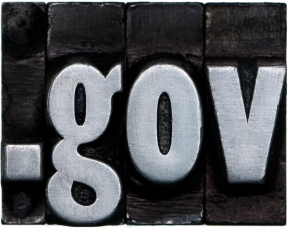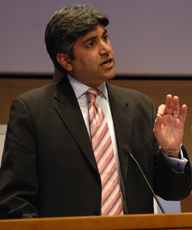
Supreme Court to hear lawsuit challenging travel ban, Senate delays vote on bill to repeal and replace the Affordable Care Act, and more…
IN THE NEWS
- The U.S. Supreme Court announced that it will hear oral arguments later this fall in a lawsuit challenging President Donald Trump’s travel ban executive order. Until then, the Court allowed the executive order to go into effect against citizens of six majority-Muslim countries who do not have a “bona fide relationship with any person or entity in the United States.”
- The U.S. Senate Majority Leader Mitch McConnell (R-Ky.) announced that a vote on legislation to repeal the Patient Protection and Affordable Care Act would be delayed until after the July 4 recess. This delay followed reports of several Republican Senators saying they would vote against formally considering the bill which followed the Congressional Budget Office’s release of an evaluation, stating that “the Senate bill would increase the number of people who are uninsured by 22 million in 2026 relative to the number under current law.”
- The U.S. Environmental Protection Agency (EPA) and the U.S. Army Corps of Engineers published a proposed rule that would repeal the Clean Water Rule and return to the definition of “waters of the United States” (WOTUS) that was in place prior to a 2015 change adopted by both agencies during the Obama Administration. The enforcement of the 2015 change never took effect as that regulation was stayed that same year. The new proposed rule is the first of two steps contemplated in a February 2017 executive order calling a review of the WOTUS rule. EPA Administrator Scott Pruitt said that in issuing the proposed rule, the agency is “taking significant action to return power to the states and provide regulatory certainty to our nation’s farmers and businesses.”
- European Union regulators fined Google €2.4 billion ($2.7 billion) over charges that it violated antitrust rules by giving priority placement to its own shopping service. Margrethe Vestager, the European Commissioner for Competition, said Google “denied other companies the chance to compete on the merits and to innovate” and “denied European consumers a genuine choice of services and the full benefits of innovation.” A Google spokesperson said Google disagrees with the fines and “will review the Commission’s decision in detail as it considers an appeal.”
- The United States Court of Appeals for the Fourth Circuit held that, under two provisions of the Clean Air Act (CAA), federal courts do not have “authority” to examine EPA’s “management of its continuous duty to evaluate the potential employment impact of CAA administration and enforcement.” The case was originally brought by several energy companies against EPA Administrator Scott Pruitt. The companies had asked the court to command EPA seeking to compel EPA to do more to investigate the influence of air pollution regulations on employment.
- The House Energy and Commerce Committee approved of the “Ozone Standards Implementation Act of 2017,” a bill that would replace the five-year cycle “for review of national ambient air quality standards” established in the Clean Air Act with a ten-year cycle. In a press release, the Committee noted that the bill would introduce “an efficient and realistic timeline.” On the other hand, Representative Bobby Rush (D-Ill.) reportedly said the bill would “permanently weaken the Clean Air Act.”
- The U.S. Supreme Court announced it will decide whether whistleblowers who only report alleged misconduct within their corporation internally, rather than to the U.S. Securities and Exchange Commission (SEC), are entitled to anti-retaliation protections. The SEC’s whistleblower protection rules, which were adopted in 2011 as part of the Dodd-Frank Wall Street Reform and Consumer Protection Act, prohibit employers from retaliating against whistleblowers who report securities violations.
- President Trump nominated Republican William Emanuel, currently an attorney at the law firm Littler Mendelson, to the National Labor Relations Board (NLRB). If Trump’s first nominee, Marvin Kaplan, and Emanuel are both confirmed by the Senate, Republicans will control the Board for the first time in approximately eight years.
- U.S. Senator Charles Schumer (D-NY) sent a letter to Ajit Pai, Chairman of the Federal Communications Commission (FCC), calling upon the FCC “to reject a new spam method called ‘ringless voice mail’ technology,” where “unwanted spam calls” “inundate” users’ voice mail boxes “without letting the phone ring.” In his letter, Schumer said that “current law,” like the Telephone Consumer Protection Act—which “prevents consumers from being plagued by unwanted and unsolicited calls”—should be “stronger and tighter.”
WHAT WE’RE READING THIS WEEK
- In an article for the magazine Regulation, Jonathan Klick, a professor at the University of Pennsylvania Law School, and Murat Mungan, an associate professor at the Antonin Scalia Law School, George Mason University, discussed a possible system under which innocent individuals who are nevertheless convicted of a crime would receive a “large payment” should they be exonerated. Klick and Mungan’s article, which drew on research they recently published in the Journal of Law and Economics, put forward analysis to demonstrate that exoneration compensation would decrease “the proportion of innocent individuals who plead guilty.” Klick and Mungan argued that an exoneration compensation system would also align with society’s ideas about fairness and may encourage defendants to continue to fight their convictions.
- In an opinion piece for The Hill, Merrill Matthews of the Institute for Policy Innovation, suggested that the United States “might just meet the Paris agreement’s U.S. goal,” even though President Trump has withdrawn from the compact. Matthews drew this conclusion from the United States’ emission reductions over the course of the past several years and the country’s use of natural gas as opposed to coal power. Matthews said that developing countries that are attempting to meet their Paris accord obligations may be able to do so by “transitioning to natural gas power” with assistance from the United States, a major natural gas exporter.
- In a report, David R. Burton, Senior Fellow in Economic Policy at the Heritage Foundation, argued that the Financial Industry Regulatory Authority (FINRA), which regulates broker-dealers, should be reformed, as it is neither a “true self-regulatory organization nor a government agency” and is “largely unaccountable to the industry or to the public.” Burton reasoned that the U.S. Securities and Exchange Commission, Congress, and FINRA should collaborate on reforming FINRA to improve its rule-making and arbitration process, which would provide greater oversight of its dealings.



